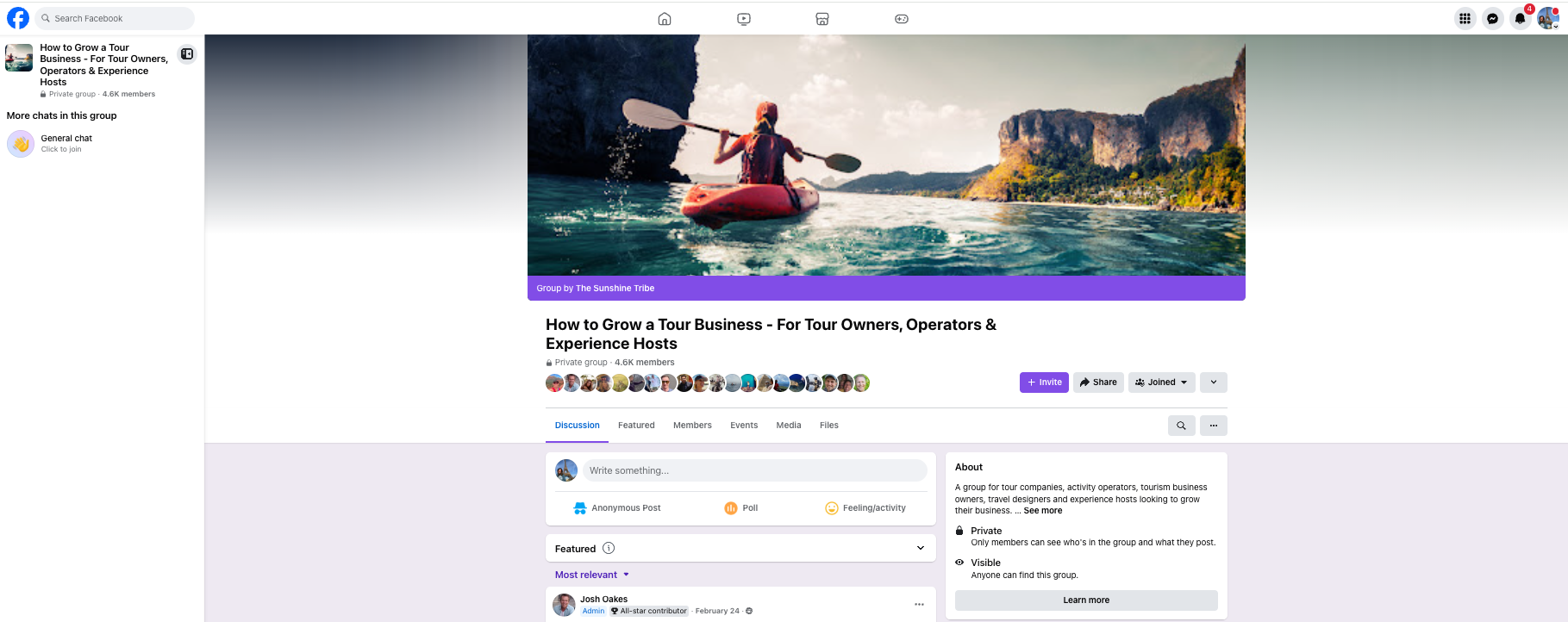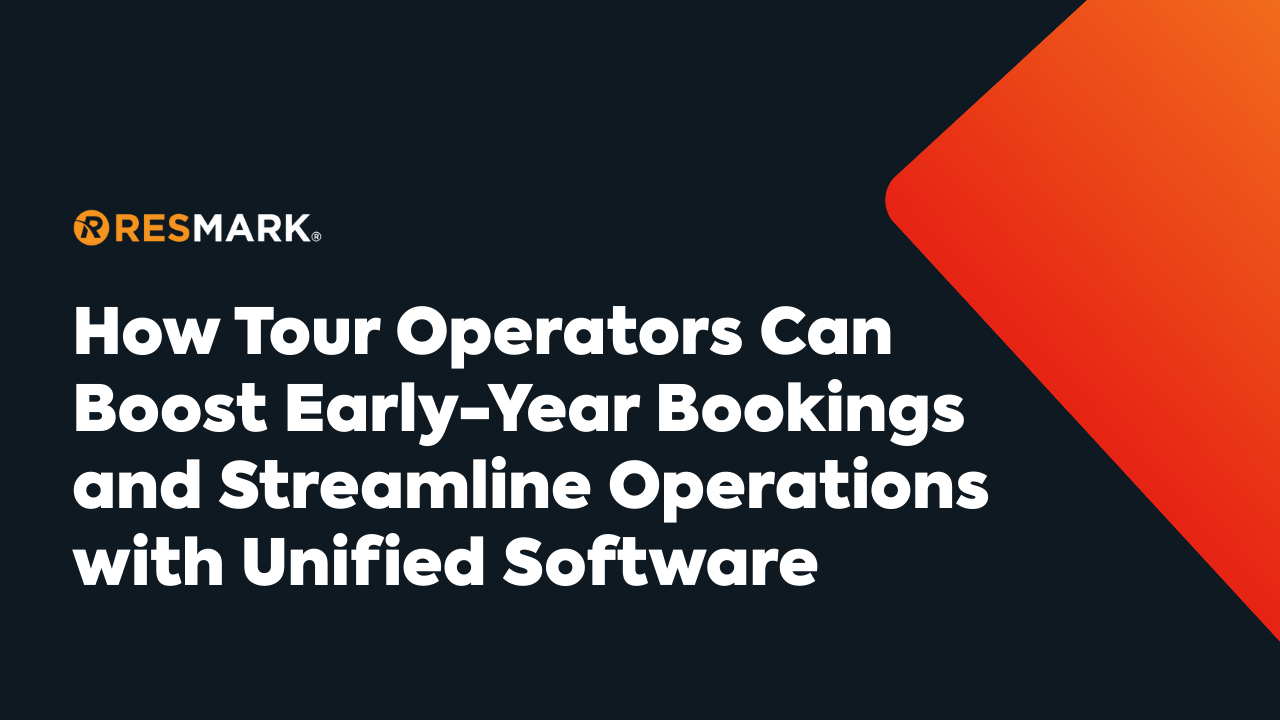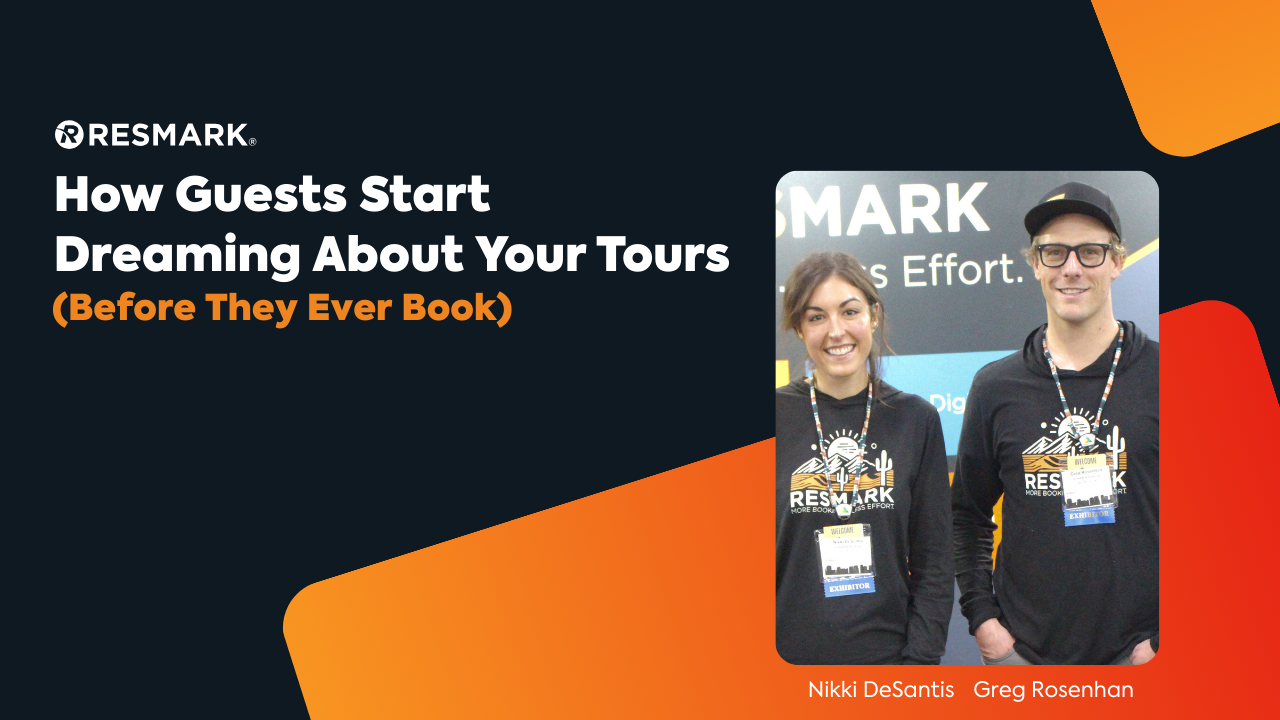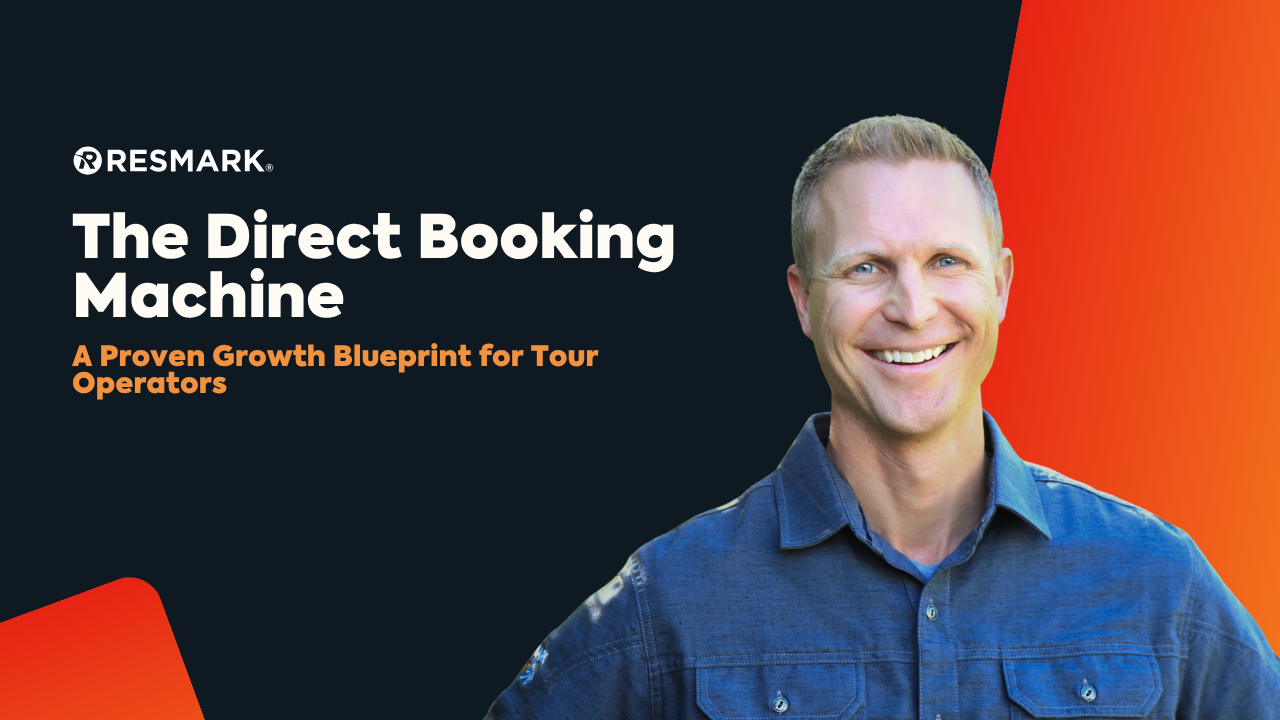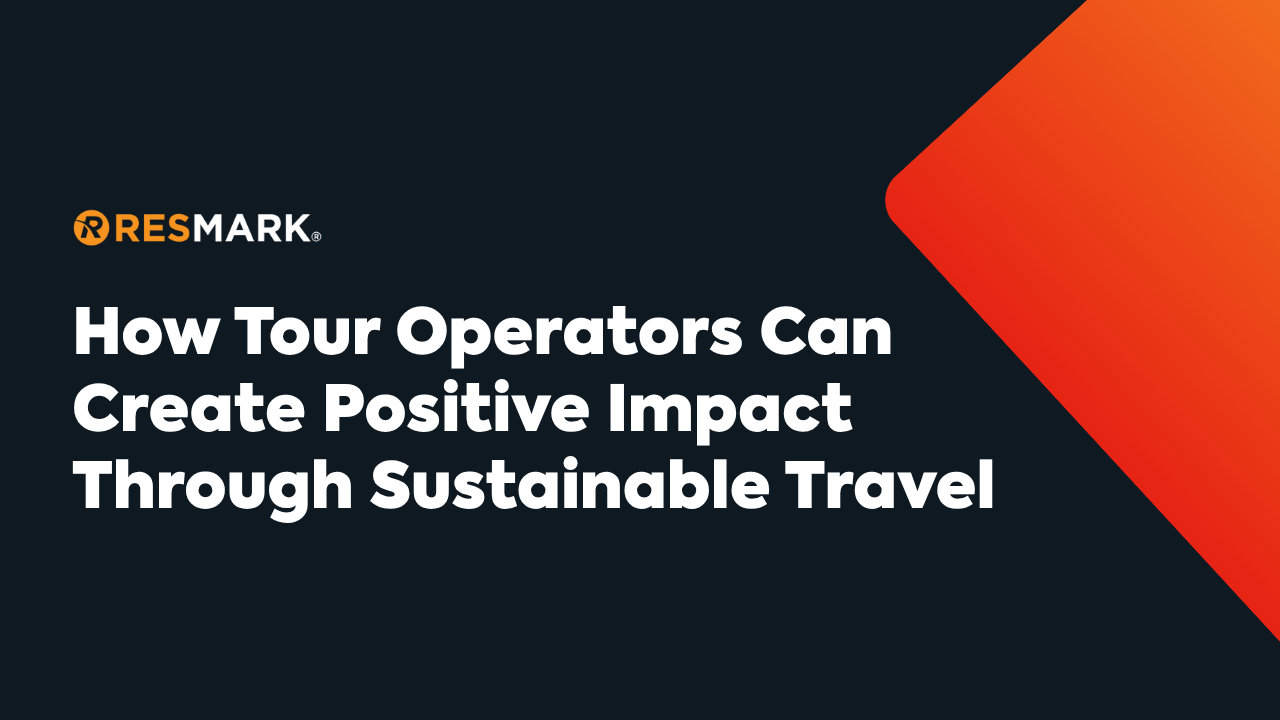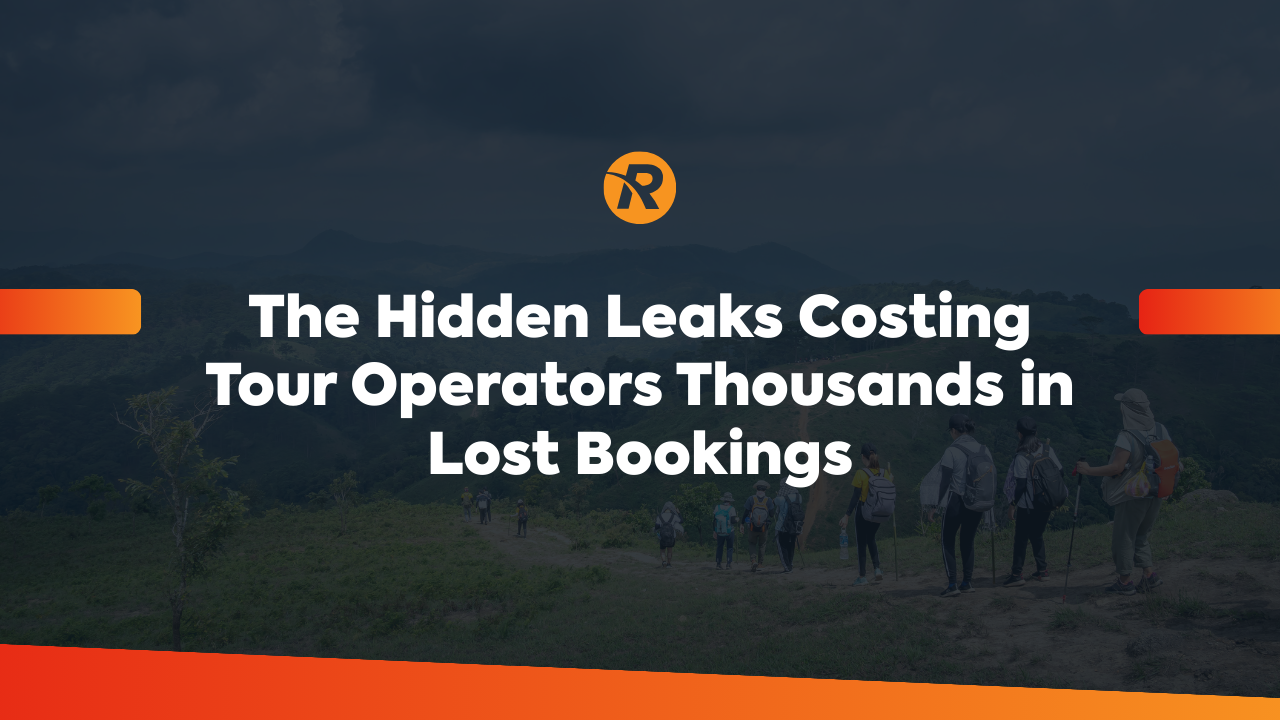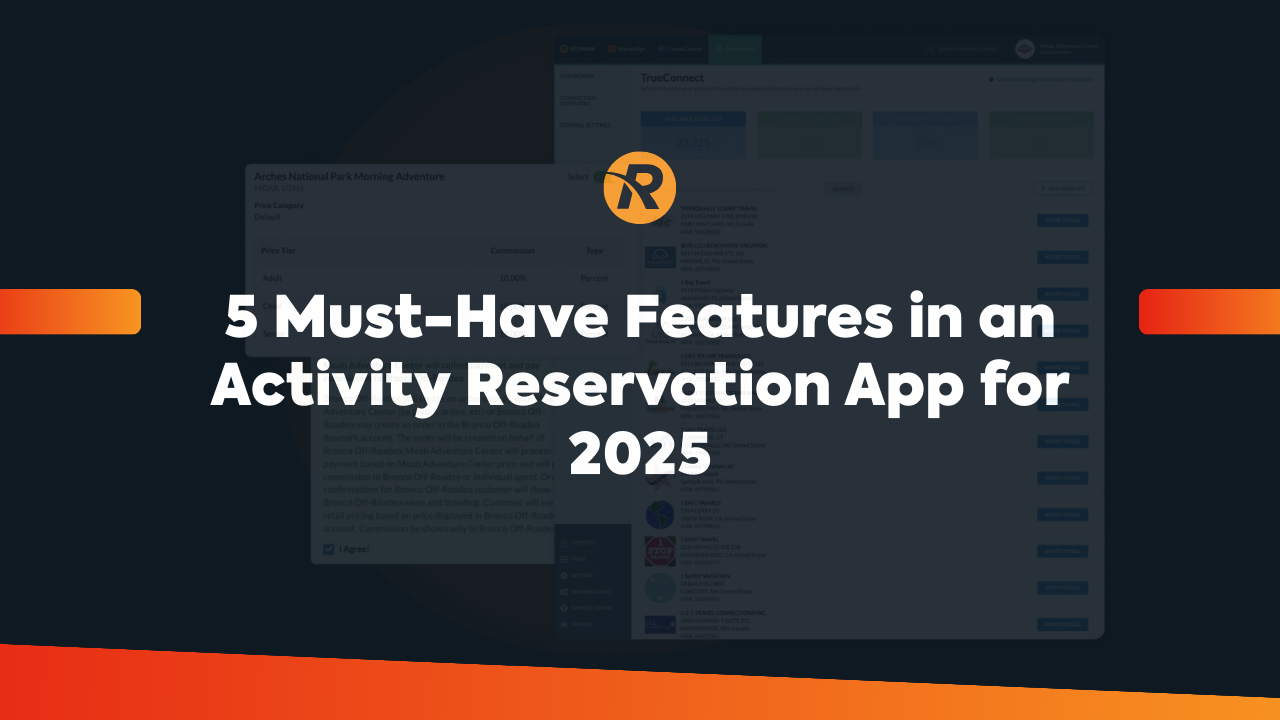17 Tour Marketing Mistakes That Could Be Sabotaging Your Marketing Goals
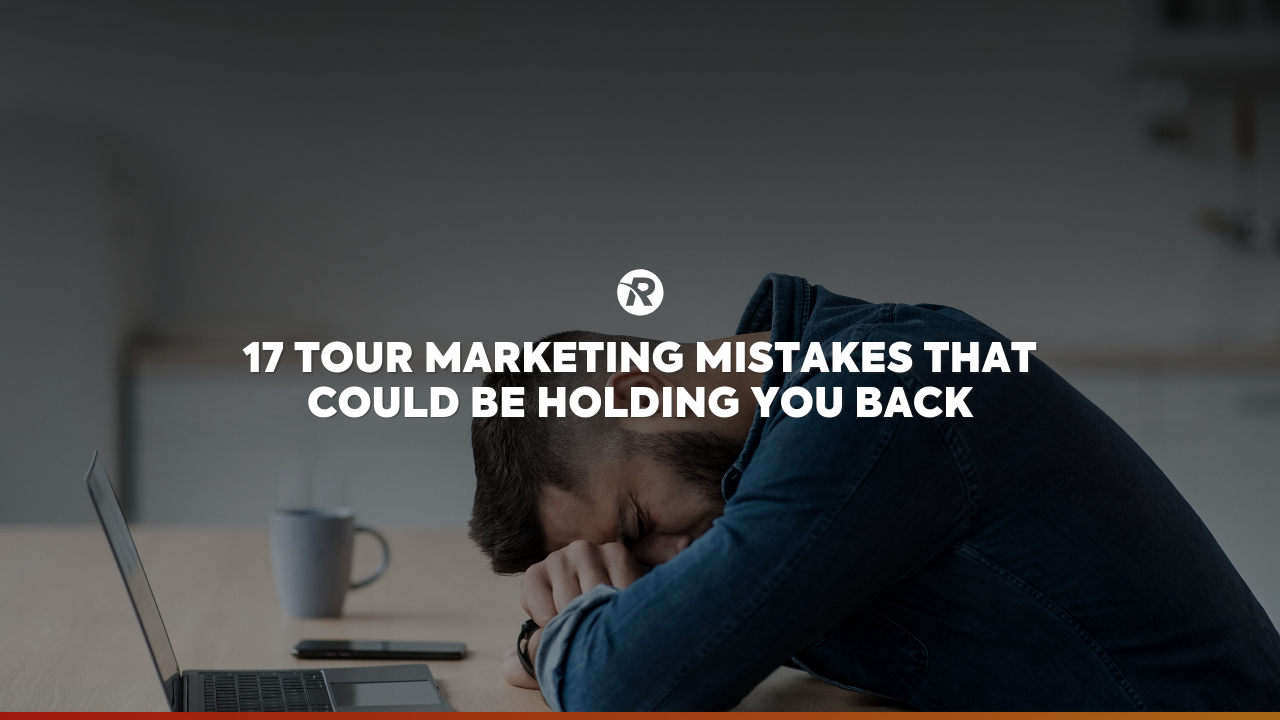
If you're not meeting your marketing goals as a tour operator, it might be because of overlooked strategy mistakes. Whether you're running ads or building a campaign, aligning every effort with your overall marketing aims is essential.
From ignoring online reviews to not taking advantage of the features you already have, these mistakes can keep your business from moving forward. This post outlines 17 common problems and gives practical advice to help you build a smarter marketing plan.
1. Not Tracking Where Leads Come From
If you’re not tracking how people are finding your business, whether it’s through Google, Instagram, referrals, or review sites, you could be missing out on valuable insights that inform your marketing strategy and increase bookings. Even a simple spreadsheet is better than nothing, but a dedicated system like a CRM for tour operators makes a big difference.
Tracking your leads helps you understand which marketing channels are actually working. If most of your customers are coming from Instagram, for example, that’s a clear sign to invest more time and resources there. On the other hand, if a paid ad campaign isn’t bringing in leads, you can adjust or cut it. Without this visibility, you're just guessing. A reliable lead tracking system helps you spend smarter and grow faster.
2. Not Using an Integrated Booking System
Manually managing bookings or relying on disconnected tools leads to not only headaches, but missed opportunities. It’s easy to miss something, double-book, or lose track of guests.
An integrated booking system like Resmark helps with more than just reservations. It connects your calendar, payments, emails, guest records, and waivers so you can spend less time on admin and more time focused on your guests.
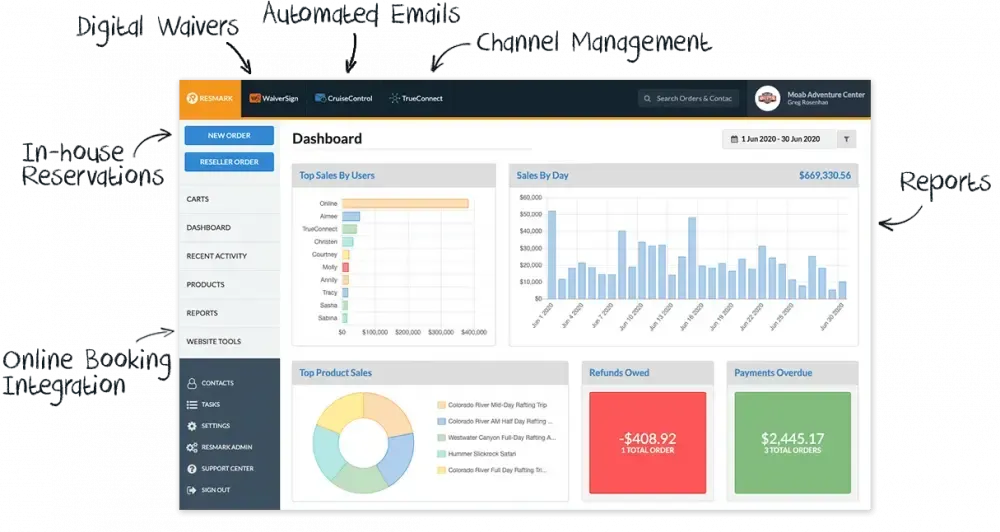
3. No Clear Call-to-Actions (CTAs)
If people aren’t booking, it might be because they’re not sure what to do next. A strong CTA guides visitors toward the next step, whether that’s making a reservation, joining your email list, or calling for more info.
Make your CTAs easy to find and use simple language like “Book Now” or “See Availability.” Don’t leave people guessing. Tell them exactly what you want them to do!
4. Ignoring the Power of Online Reviews
Online reviews influence booking decisions more than you might think. They show potential guests what kind of experience they can expect.
Make it easy for happy customers to leave reviews by sending a quick follow-up email after their tour, or maybe even an SMS. Always respond, even if the feedback isn’t perfect. This shows you’re engaged and professional. For more guidance, see this post on review management.
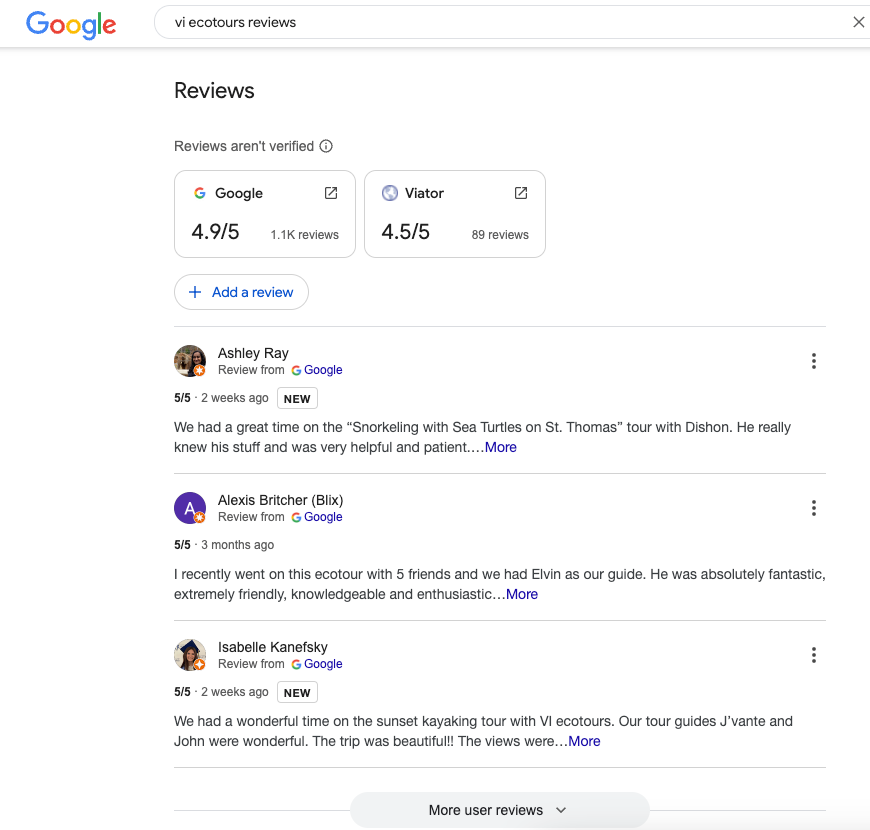
5. Underusing Features in Your Booking System
Many tour operators only use the basics, such as the calendar and payment tools, while ignoring features that could save time or help grow revenue.
Features like automated follow-up emails through Resmark’s Cruise Control, discount codes, customer notes, and reporting tools are often built in. Take time to learn what your system can actually do. You may already have the tools you need, you just haven’t turned them on yet.
6. Not Investing in a Marketing-Focused Website
Your website should help people book, not just tell them what you offer. If your site is outdated, hard to navigate, or missing key information, it could be turning people away.
A well-designed tour operator website includes clear calls to action, mobile-friendly design, trust signals like testimonials, and fast loading times. Your website is where many people decide whether to trust you. Make sure it’s working in your favor.
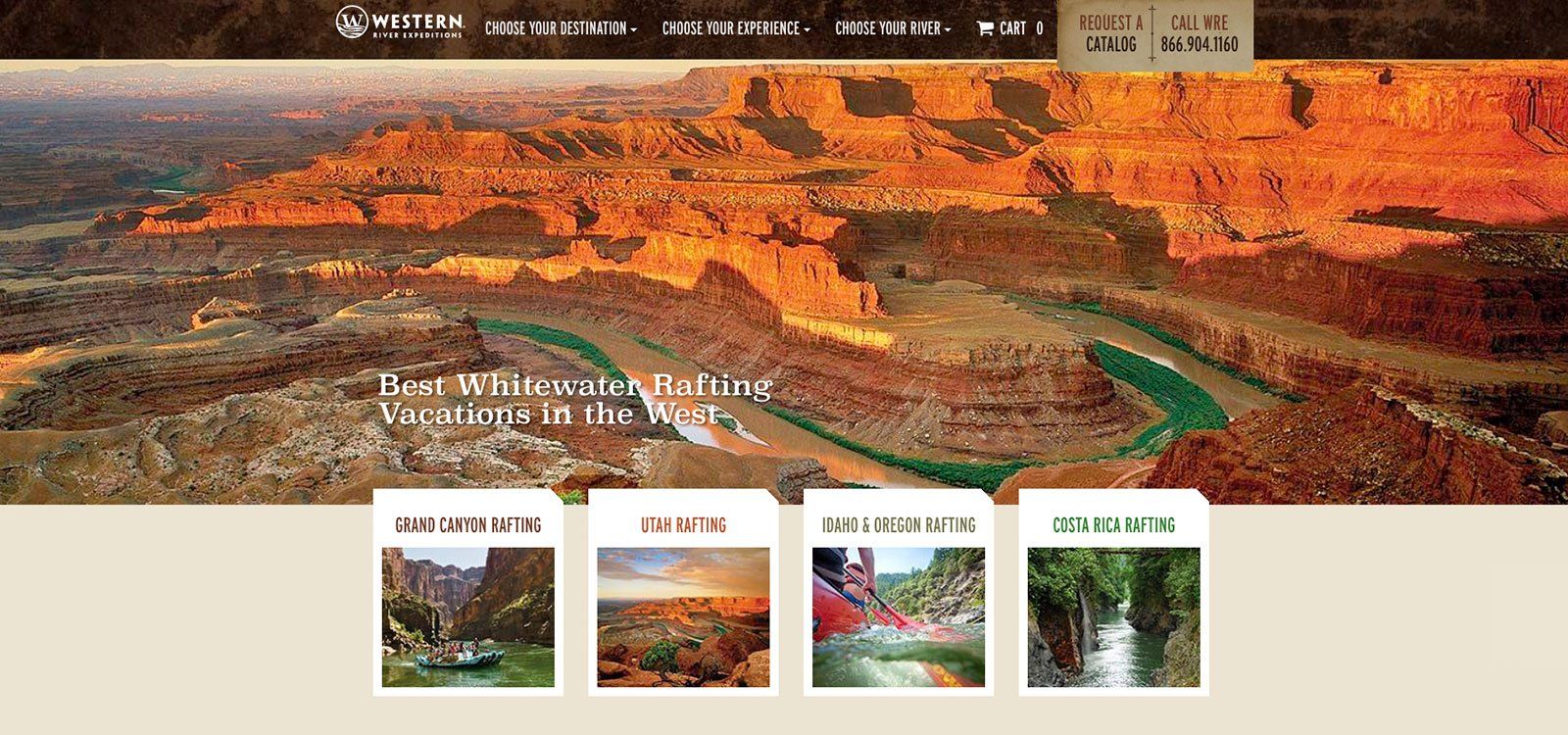
7. Neglecting Basic SEO
If you’re not showing up in search results, you’re likely missing out on potential customers. SEO doesn’t have to be complicated, but it does need attention.
Start by making sure each page has a clear topic, uses plain language, and answers the kinds of questions travelers are asking. Add location-based content and check your site speed. For a simple place to start, explore this SEO guide for tour companies.
8. Skipping Blogs and Resource Building
Writing blog posts can help more people find your business online and learn about what you offer. It’s also a way to answer common questions and make guests feel more prepared.
Write about topics like “What to Pack,” “Things to Do in [Your Destination],” or “Meet Our Guides.” Once you write it, you can also share it in your emails or on social media. A little effort here goes a long way.
9. Not Automating Where You Can
Doing everything by hand takes up valuable time and increases the chance of mistakes. Whether it’s sending reminders, asking for reviews, or confirming bookings, automation makes your life easier.
Start small. Set up automated booking confirmations and follow-up emails. Over time, you can add more. Many booking platforms have these features ready to go. You just need to turn them on.
Also, keep in mind, you can automate email campaigns. Here’s an example of an automation we just set up for a client. We’re running Facebook ads for a tour operator, with three different ads targeting different destinations. When someone clicks to get more info and fills out the form, that contact is automatically added to the client’s CRM, tagged based on which Facebook ad form they completed. From there, they receive a specific sequence of emails delivered right to their inbox.
When someone replies to one of those emails, the tour operator gets notified and can jump in to personally answer any questions. The best part? He didn’t have to individually reach out to every single person who filled out a Facebook form. It all happens automatically!
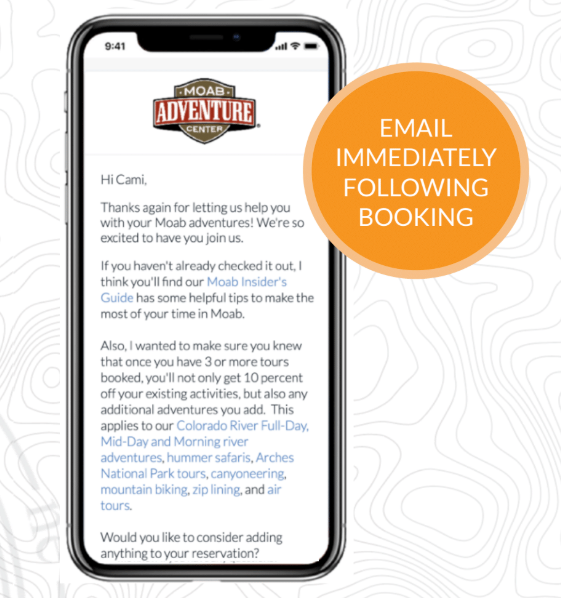
10. Not Investing in Ongoing Learning
Marketing isn’t static. New tools, platforms, and customer behaviors emerge all the time. Something that worked two years ago might not be effective anymore.
Spend a little time each month staying informed. Watch a short webinar. Read a blog post about
tour operator SEO. Follow an industry leader on LinkedIn. Even 30 minutes a month can lead to smarter decisions and better results over time.
11. Not Delegating or Getting Help
If you’re doing everything yourself, you’re probably doing too much. It’s tempting to think you’re saving money, but holding on to every task can slow you down and keep your business from growing.
You don’t need a big team. Start small by outsourcing one thing, like blog formatting, image editing, or basic inbox management. You can use platforms like
Upwork or
Fiverr, or find a local intern who’s looking to build experience.
12. Avoiding Community Involvement
Running a business can feel lonely, but you don’t have to figure everything out on your own. There are Facebook groups like Josh’s Sunshine Tribe and the Tour & Travel Marketing Mastermind where tour operators share ideas, tools, and strategies that are actually working in the real world.
You’ll learn faster, discover what others are testing, and find encouragement from a group of people who understand your challenges. You might even find a new partner or referral source just by showing up and contributing.
13. Thinking Social Media Doesn’t Matter
Social media marketing and advertising isn’t just a place to post pretty pictures. It’s where travelers go to learn about experiences, ask for recommendations, and get a feel for your brand. If you’re not active where your audience is spending time, they may never find you.
Choose two or three platforms that make sense for your tours. Post regularly and focus on sharing helpful, fun, and authentic content. Think trip prep tips, behind-the-scenes stories, guest highlights, and real conversations, not just promotions.
14. Failing to Follow Up with Guests
Many operators work hard to get a booking but stop there. The experience should continue after the tour ends. Following up with guests shows that you care, helps you stay top of mind, and opens the door for referrals or repeat visits.
Send a thank-you email. Ask for feedback. Include a link to leave a review or offer a small discount on a future booking. These small touches make a big difference.
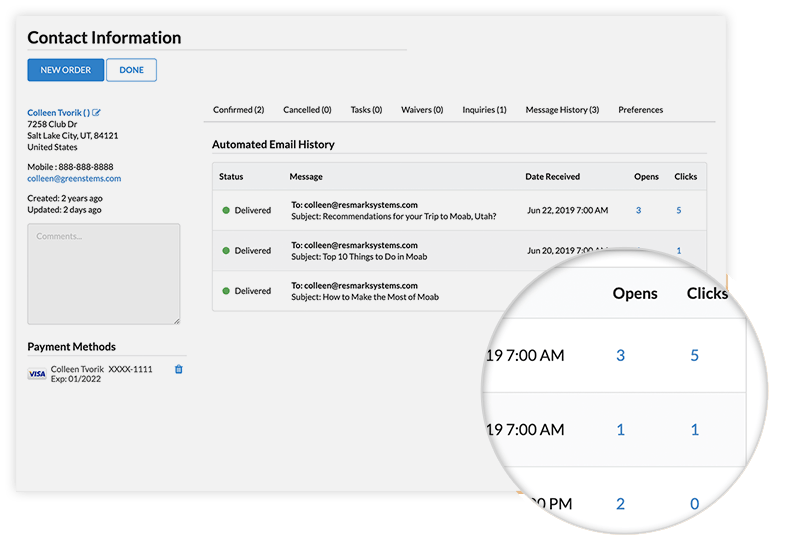
15. Not Aligning Ad Spend with Landing Pages
Running ads without a clear landing page strategy is a fast way to waste money. If your ad promotes a specific experience but your homepage features everything you offer, you’re asking potential customers to do too much work.
Build simple landing pages for each campaign. If you're advertising a private tour package, send visitors directly to a page about that specific service. Keep the message consistent from ad to page, and you’ll see better results.
16. Using Too Many Disconnected Tools
If your booking software doesn’t sync with your waiver system, which doesn’t integrate with your email platform, you’re spending more time managing systems than running your business.
It’s worth taking time to review what tech stack you’re using. Look for platforms that connect with each other or consider switching to an all-in-one solution like Resmark. Fewer tools means less chaos and fewer things to forget or break.
17. Skipping Digital Waivers
Paper waivers are easy to lose, slow to process, and frustrating for both staff and guests. Digital waivers make the check-in process smoother and more professional.
With a tool like WaiverSign, guests can sign online before they arrive. You’ll collect accurate data, save time at check-in, and store everything securely. It’s a win for both sides.
Plus, when guests opt in to marketing during the signing process, you can build a valuable email list of people who are already interested in your experiences. This opens the door to follow-up promotions, seasonal offers, and re-engagement campaigns that keep your brand top of mind and encourage repeat bookings.
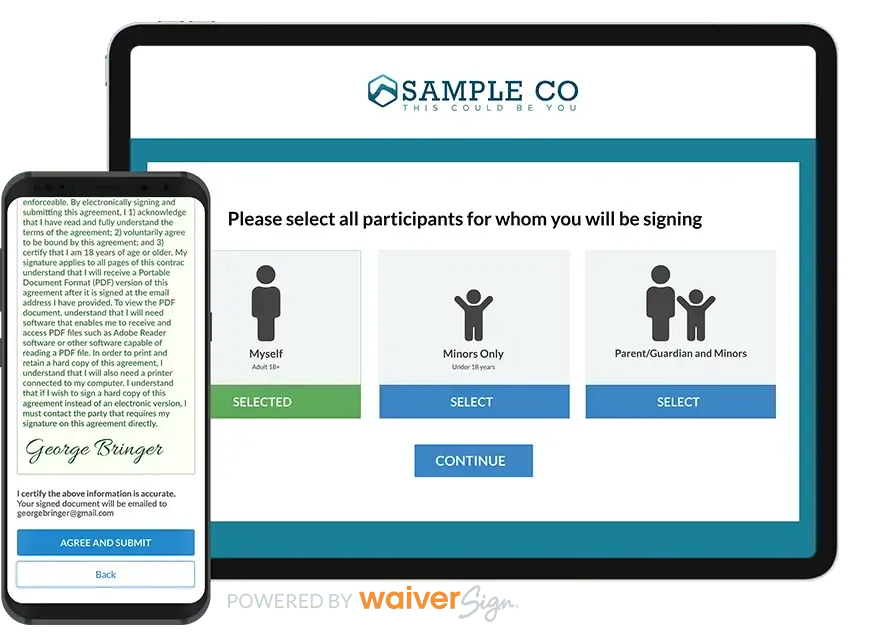
Smart Marketing Q&A for Tour Operators
What’s a marketing goal I can set if I only have a few hours a week?
Start with something simple and realistic. Try collecting 50 new email subscribers in the next month or publishing one blog post every two weeks. You could also aim to post on Instagram three times a week. Choose goals that support your larger strategy without overwhelming your time.
Why does a tour business need clear marketing goals?
Without goals, it’s hard to measure success or know where to focus. Goals give you direction, like increasing direct bookings, improving website traffic, or getting more five-star reviews. They help you work with purpose, not just react to whatever’s urgent.
How do I set a goal for a seasonal promotion?
First, decide what you want the promotion to achieve. For example, “Fill 80 percent of fall tour dates by September 15.” Then plan the steps to get there, such as launching an email campaign, running Facebook ads, and posting weekly on social media. Each part should support that one clear outcome.
How do I make sure my ads match my marketing goals?
Every ad should have a purpose. If your goal is to book more private tours, don’t run a general ad. Create an ad that speaks to that specific audience, then send people to a page that talks only about private tours. The clearer the message, the better the results.
What are good short- and long-term goals for a tour operator?
Short-term: Collect 20 new reviews this month, update three key landing pages, or test a new Facebook ad for 30 days.
Long-term: Increase bookings by 30 percent year-over-year, reach the first page of Google for a specific keyword, or reduce ad spend by improving conversion rates.
What’s a common mistake operators make on social media?
Only posting when they need to sell something. Guests want to see your personality, the experience, and the people behind the brand. Share stories, tips, and fun moments, not just promos. This helps build trust and familiarity over time.
I’m just starting with digital marketing. What should I do first?
Make sure your website is clear, fast, and easy to use on mobile. Then choose one marketing channel to focus on, like email or Instagram. Build a habit of consistency before adding more. And consider joining a Facebook group to learn as you go.
How does reservation software help with marketing?
Good reservation software connects your marketing with your bookings. It can track how people found you, send automatic emails, recover abandoned bookings, and help you understand your performance. It saves time and gives you clearer insight into what’s working.
Simple Changes That Make a Difference
Every tour operator makes mistakes, it’s part of learning and growing. The key is recognizing where your marketing efforts might be falling short and taking small, consistent steps to improve. Whether it’s tracking your leads, updating your website, automating more tasks, or simply asking for reviews, each improvement builds momentum. You don’t need to fix everything overnight. Start with one or two of the tips in this list and keep moving forward. A smarter, more streamlined marketing strategy isn’t just possible, it’s within reach.
Want help figuring out where to start?
You can talk with one of our marketing consultants for free.
Book a call now and get practical advice tailored to your business.
Share This Post

